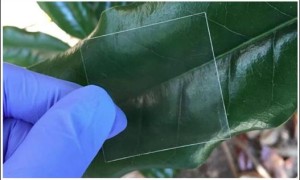Here’s why “You’re Welcome” is not the right response to “Thank You”
Saying thank you is good manners. That’s not up for debate. But we do need to talk about the way to respond when being thanked. You need to say something, right? many people, particularly in the US, reply to “thank you” with “you’re welcome.”
毫无疑问,道谢是种好习惯。可问题来了,别人向你道谢时,你该说什么?你总得说点什么,不是吗?许多人,尤其是美国人,听到对方说“thank you”(“谢谢”)后,常会答一句“you’re welcome”(“不谢”)。
This has begun to change, as young people use and hear “you’re welcome” sarcastically. And it’s not just young people: To people from other parts of the world, “you’re welcome” can sound rude.
如今的回答方式已经改变,因为对年轻人来说,“you’re welcome”一语多少带点讽刺意味。而且,不止年轻人这么认为,在其他一些国家,“you’re welcome”听上去并不礼貌。
Brits, for example, can’t help but hear a hint of condescension in there. But the problem with “you’re welcome” isn’t sarcasm. Well, not the whole problem. It’s about meaning.
比如,英国人就觉得,“you’re welcome”听来有些傲慢。不过,嘲讽之意倒不是个问题,至少不是个大问题。真正值得探究的,是这个短语的意思。
Not that this is the intention, but “you’re welcome” can sound like you’re taking the polite gesture from the thanker, and bringing attention to your kindness. To the unaccustomed ear, it can sound like “yes, I did you a favour, you should be thankful.” It’s not intentional, I’m sure. But that doesn’t make it any less ambiguous.
“You’re welcome”听上去就像你试图不顾道谢者的礼节,强行凸显你的善意一样,虽然你可能不曾意识到这点。但在有些人听来,你就像在说“瞧,我不帮你了嘛,你理应要谢谢我”。所谓言者无心,怕就怕听者有意。
Similarly “no problem”, or the reply favoured by our Australian friends, “no worries”, are both flawed. Often said with a dismissive shrug, “no problem” can be interpreted as simply denying that being kind is an inconvenience. But to those used to hearing “you’re welcome,” “no problem” can be sound like being kind is sometimes an inconvenience…and that you might not have helped if it had been.
另外,“no problem”(“没问题”)以及澳洲人爱用的“no worries”(“别担心”)同样值得斟酌。嘴上说着“no problem”,加上无谓地耸耸肩,大概是说帮忙不是什么麻烦事。不过,对那些听惯了“you’re welcome”的人而言,“no problem”似乎暗示了帮忙有时候真是件麻烦事。若情况真的无比棘手,你绝不会挺身而出的。
Young people tend to respond to being thanked with “no problem”, which older people find rude. So it’s a generational problem, yes. But also a linguistic one. Why is this? Here’s where it gets technical…
当你道谢时,年轻人通常会回一句“no problem”。这在老年人看来,实在太不礼貌了。所以,这算个代沟问题,没错。不过这也是个语言学问题。至于原因嘛,就得涉及专业知识了……
Both “you’re welcome” and “no problem” are phatic expressions, an expression whose sole function is to perform a social role. We use phatic expressions all the time. For example when we respond to “how are you?” by saying “good, you?” Or by responding to “what’s up?” with “what’s up?”.
“You’re welcome”和“no problem”都是客套用语,仅仅用作应酬。我们时时都会说这样的客套话,比如有人向你问好“how are you?”(“你好吗?”),你就会说“good, you?”(“我很好,你呢?”)。有人和你打招呼“what’s up?”(“嘿呦!”),你便回答“what’s up”(“嘿呦!”)
Often we use a phatic response when we don’t know what else to say. Saying “I’m OK,” for example, even when we’re not. Or to simply acknowledge someone, or something, when there is no need to convey actual information. We know people aren’t (usually) actively asking how we are, so we respond phatically. But because “thank you” is a sincere expression, many common phatic responses sound empty in comparison. The emptiness of the response is why some people tend to find “no problem” or “you’re welcome” dismissive.
我们常用客套话,是因为我们不知道说什么。比如,即便我们真有事,嘴上还是会说“I’m OK.”(“我没事”)。有时候,我们只是提到某人某事而已,并不想多说什么。大多数时候,问好就是个口头套话而已,于是我们也就用套话回答了。然而,“thank you”往往带着真情实意,相比之下,再用套话回答就显得虚伪了。或许,正是这种虚伪,让人们觉得“no problem”或“you’re welcome”听上去充满了轻蔑。
So, what are the options? Are we at a linguistic impasse?
那么,当别人道谢时,究竟该说什么呢?我们真的陷入了语言困境吗?
Thankfully, no.
谢天谢地,没有。
As the Brits have long known, the correct way to respond to “thank you” is to say “thank you”. Similarly, you can respond to “cheers” with “cheers”. This response is still phatic in purpose, but the tone and context can’t be misread.
英国人早就知道,别人说“thank you”(“谢谢”)时,正确的回答也是“thank you”(“谢谢”),类似于别人说“cheers”(“干杯”),你也跟着说“cheers”(“干杯”)就行。此番回答听上去依旧客套,但没了讽刺味道,也不会引起歧义。
Effectively, you’re thanking the thanker for their thanks. Everybody wins! And there’s no need to get stuck in a thank you loop; once each will do.
事实上,回答“thank you”,你是在感谢对方的感谢行为。这就是所谓的双赢嘛!另外,双方也没有必要无休无止地感谢下去,说上一轮就够了。
Thank you.
谢谢。
Vocabulary
condescension: 以恩人自居的态度;傲慢态度
dismissive: 表示轻视的
phatic: 应酬的;仅仅是交际性的
英文来源:Buzzfeed
译者:郭汪韬略
编辑:丹妮







